Well, that's cold. Even for you, Andor.
A chilling, dystopian Ep. 8 may solidify Andor as the best Star Wars series. So why is no one watching it?
The Short Take:
Andor continues to astound with its consistent quality and depth. I’m nearly ready to call it not only the best Star Wars series we’ve gotten so far, but the best series of the year. And this is the most terrifying episode yet.
Image Credit: Vulture
[SPOILER ALERT: This review used to be spoiler-free. But now it’s filled with spoilers. Take it up with the Emperor.]
The Long Take:
Dear dedicated Star Wars fans: not enough people are watching this amazing show. Despite very positive reviews from critics and fans, recent reports indicate that Andor is the least viewed of all the Star Wars Disney+ shows.
I’ve been wracking my brain all week as to why this might be the case. Thankfully, I have friends to help. Greg Cass (@eyeoncanon), Ben Brophy (@zenkenobi), and I shared what how the other more casual Star Wars fans in our lives have reacted to the series. Some assumed that they didn’t get what was going on because they hadn’t seen enough Star Wars and stopped watching. Others thought it too slow. Others still didn’t connect with the stakes or said there was no drama.
What might unify all these responses? Perhaps not as many people are watching Andor because it’s a show that requires more active engagement than we’re used to, at least with Star Wars. Earlier this week, I had the absolute delight of joining my colleague Dan and his longtime friend Manny on their podcast, The Nostalgia Test. We had a broad conversation about nerd culture and nostalgia, and all the new series coming out of big franchises like Marvel and Star Wars. Manny noted that while he’s enjoying Andor, “it’s not a show you can double screen, for sure.” I then chimed in that I know several people who watch the series with the captions on. I, personally, love TV and movies that ask me to infer implications from conversations and connect the dots on my own. But I have to acknowledge that not everyone wants that from their entertainment. They might prefer to have something in the background while they double screen or chat with friends. And that’s okay.
I would liken Andor to another acclaimed show that expects its viewers to pay close attention — HBO’s The Wire, which is arguably the greatest television series of this century. It’s sprawling, with many characters and settings through which each episode rotates. And it is so for a purpose. As my friend and colleague P.T. McNiff put it: “it’s a study of people in systems that are slowly crushing them.” Both The Wire and Andor ask their viewers to observe these systems, to sit with them and contemplate how they all fit together.
In this week’s episode of Andor, “Narkina 5,” we feel the crushing weight of systems more intensely than we ever have because Cassian Andor goes to prison. And not just any prison. A nightmarish, twisted social experiment that reminded me of dystopian science fiction like The Running Man, The Hunger Games, and most recently, Netflix’s Squid Game. The Korean survival drama’s look and feel most closely hews to “Narkina 5,” I think, from its minimalism to the low, vocoded voice on the PA system. Wednesday evening, I had the honor to record a deep, engrossing conversation with Colby Mead of The ColbyCast and host Dan Zehr on Coffee With Kenobi (apparently, when it rains it pours in podcasting). Dan astutely added 1984 to this list of potential references; Orwell’s novel preceded the others by several decades, and arguably influenced them all. So perhaps we should describe Andor, or at least this Narkina 5 arc, as Orwellian. (He also, to double back for a moment, likened Andor to a Tolstoy or Dickens novel. And I know that many critics have also characterized The Wire has the latter. I very much appreciated all the literary references in our conversation!)
Image Credit: CNET (Netflix’s Squid Game)
To create an Orwellian feel, I’m convinced Tony Gilroy read Michel Foucault’s Discipline and Punish: The Birth of the Prison (Thanks, grad school! I’m finally using this dense text you asked me to read!) because Narkina 5 so eerily echoes what the French philosopher describes when he examines the disciplinary power that conditions society and keeps people under its control. On Coffee with Kenobi, I made an attempt to explain the connections I see between Narkina 5 and Foucault’s panopticon, but could not have done so as thoroughly as I will try to do here. To begin, a focal point of Foucault’s exploration of social systems and control is the panopticon, a prison design invented by the father of utilitarianism, Jeremy Bentham, in the 18th century (I think I said 19th century on Coffee With Kenobi, and while technically it was used in the 19th century, Bentham first thought of this idea as early as 1785). The general concept is that the guards can see the prisoners but the prisoners cannot see the guards; as a result, they fall in line because they assume they are under surveillance all the time. The system regulates itself without much direct intervention from those in power.
I noticed two places in this episode Andor that very literally reflect a panopticon. After the guards drop Cassian and other new inmates off at the factory, they leave. Kino Loy, fellow inmate and “floor manager” — played by the magnetically stern Andy Serkis — says “he won’t be back. They only come to pick up the dead and bring their replacements.” The guards don’t have to physically be with the inmates; they can rely on the system in place to discipline them. Similarly, there are no bars on the cells and they can eat as much food as they want. Doesn’t sound too bad, right?
Sorry. The illusion of relative freedom or comfort distracts prisoners from the horrors of their confinement. The first guard they meet after their transporter lands says that they are able to “risk standing before you without weapons” because they use “minimally invasive techniques.” He implies that they should appreciate the “calm, sanitary conditions.” Obviously, when we see the “frying” from the floor and realize why Cassian and the other prisoners had to remove their shoes, it’s harrowing. But the inmates we meet once we get inside seem to mostly accept their fates and have normalized these conditions; that’s because the discipline being less invasive and less visible makes it more likely that prisoners will forget where they are.
A panopticon is self-sustaining because it rewards individual prisoners for policing their peers, and, as Van Lathan on The Ringer-Verse pointedly noted, “weaponizes our needs and desires” against others. We learn the gamified system awards the top “team” some flavor in their food, for instance, whereas the least productive team gets “fried.” The fact that the floor manager, Kino, is a fellow prisoner is heartbreaking because I’d like to think that someone going through the exact same experience as everyone else would empathize with them and not want to inflict more suffering on them. But self-interest and survival have a gravitational pull.
Image Credit: Polygon
To go back to the active engagement that distinguishes Andor from other shows, Tony Gilroy doesn’t have Cassian actually say something like, “But you’re one of us; why are you doing this?” We have to figure that out on our own by noticing that Kino acts like he works for the Empire but wears the same shoeless uniform. When Cassian first arrives, he sees the other inmates at his table cheering each other on as they frantically try to assemble some unnamed equipment on time. He looks shocked and confused for so long because it’s unreal how enthusiastic these prisoners seem. Competition keeps people from rising up because they’re too worried about getting ahead of each other. Kino, for example, says, “I have a free hand in how I run this room.” Narkina 5 has provided him with the illusion of freedom or personal comfort at the expense of others. The system relies on individuals like Kino to be complacent enough or focused on their own wellbeing enough to not rebel.
On Coffee With Kenobi, I never got to explain the second phase of Foucault’s panopticon theory. He very consequentially extrapolates that the panopticon is actually a blueprint for all institutions: not just prisons, but schools, hospitals, the military, and….drum roll please….factories. So the fact that Narkina 5 is both a factory and a prison is actually doubling up on Foucault’s notion of discipline. And, without much strain, I can extrapolate a parallel between Foucault’s prison to the Empire in general. We have seen so many characters participating in Palpatine’s totalitarianism not because they are mustache-twirling villains, but because they are focused on how to get ahead in the world and meet their own needs within the system. Like the inmates that Cassian meets at his “table,” many of the citizens under the Galactic Empire are too busy competing against each other to consider how it might exploit them. The phrase “on program” on Narkina 5 is so dehumanizing, implying that they’re all just cogs in the machine, programmed for productivity. And even though no one else outside of the prison shouts that command, ordering people to put their hands behind their back, many residents of the Star Wars universe during this time are also “on program.”
For example, I originally thought that Cyril and Dedra would get along immediately and that they would team up to find Andor, but the encounter we actually get between them makes so much more sense because they are too similar to each other and therefore are in competition. If Cyril really is as good an investigator as he says he is, then he is a threat to Dedra’s position of power potentially. (For the record, I don’t think she actually is. To me, he’s all zealotry and no heat.) So it’s much more beneficial for her to exercise her own power over him and tell him to go back to his little octagonicle and forget this ever happened. While she does have a fleeting flash of sympathy for him on her face when he makes his final, desperate plea and in response she simply wishes him luck, she fails to see the hypocrisy of her doing the same thing to Cyril that her own superiors have been doing to her. She has become a floor manager like Kino, and she’s not going to give that up. I could say the same of Commandant Jayhold from Episode 6. His main concern is getting promoted and reassigned to a better planet, and he’s willing to do anything — including commit atrocities on the Dhanis — to achieve that.
Image Credit: Decider
I haven’t even gotten to the scariest part of our visit to Narkina 5: that Cassian eventually acclimates to the system. I thought there might be a time jump between the previous episode and this one, with this episode starting with Cassian already in prison for some time and then someone helping him break out in classic Star Wars fashion. But, as I said on Coffee With Kenobi, it is so much more powerful to show his initial shock at this system that other inmates treat as totally normal. Then, when we, within the episode, cut to 30 shifts later, he’s sucking down his food tube and hustling to help his teammates without issue. It did not take that long to browbeat him into submission.
Cassian obviously can’t stay this way. To me it seems like the next three-episode arc will be a prison break story, much like episodes 4-6 were a heist story. Similar to the start of the heist arc, Cassian is at the center and he’s met a group of minor characters who will go with him on his journey and… mostly die if the heist arc serves as precedent. The only problem is that this episode makes it seem like it will be utterly impossible to escape this prison. So what will happen that will get him to wake up and start planning a prison break? What will be the straw that breaks the camel’s back? And how will he use his smarts to figure out a vulnerability in Narkina 5? I can’t wait to see.
I never even got to Mon Mothma’s perilous party-going, Luthen and Saw’s tense, political fireworks-laden conversation, or Vel and Cinta’s star-crossed relationship, fracturing by the day due to the cause. All of the storylines were captivating, but, for me, the prison after which Gilroy names this episode clearly stands out as having the most impact.
Image Credit: IGN
After “Narkina 5,” I’m just about ready to say that this is the best Star Wars series we’ve gotten so far. I love the other series we’ve gotten too, but they have had highs and lows episode to episode. Andor has been so consistently excellent. And it’s giving us a chilling new perspective on the Galaxy far, far away.

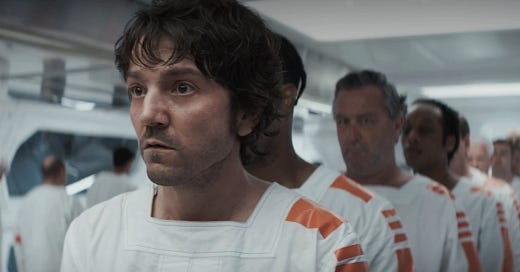



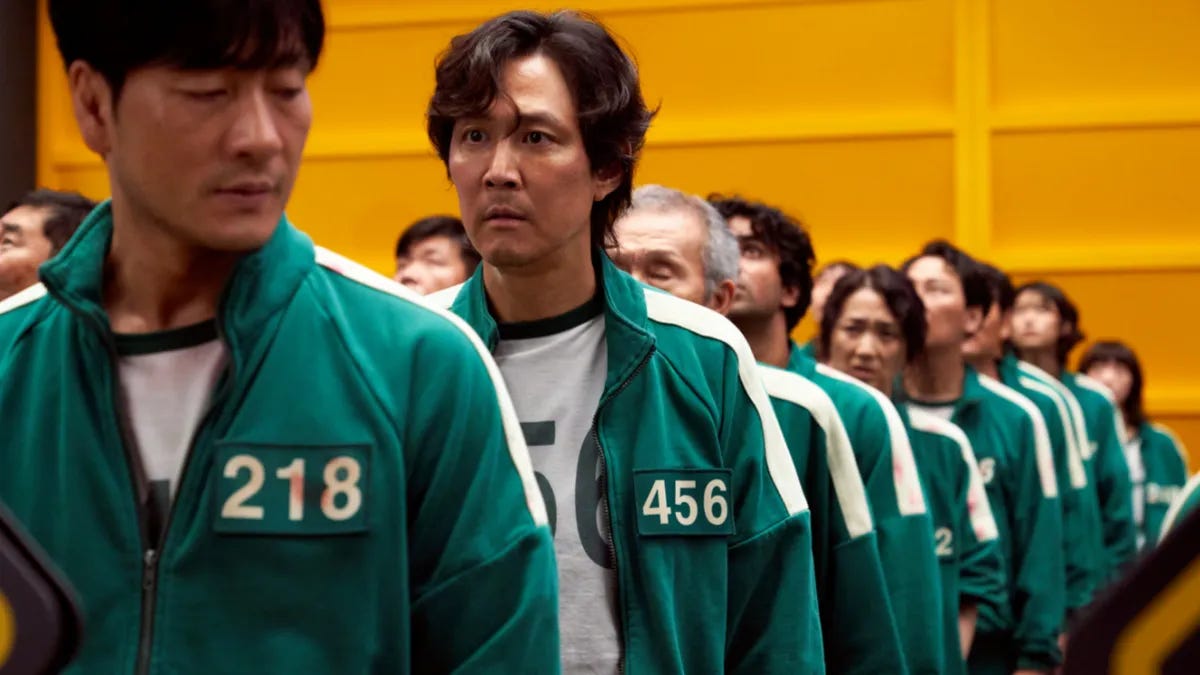
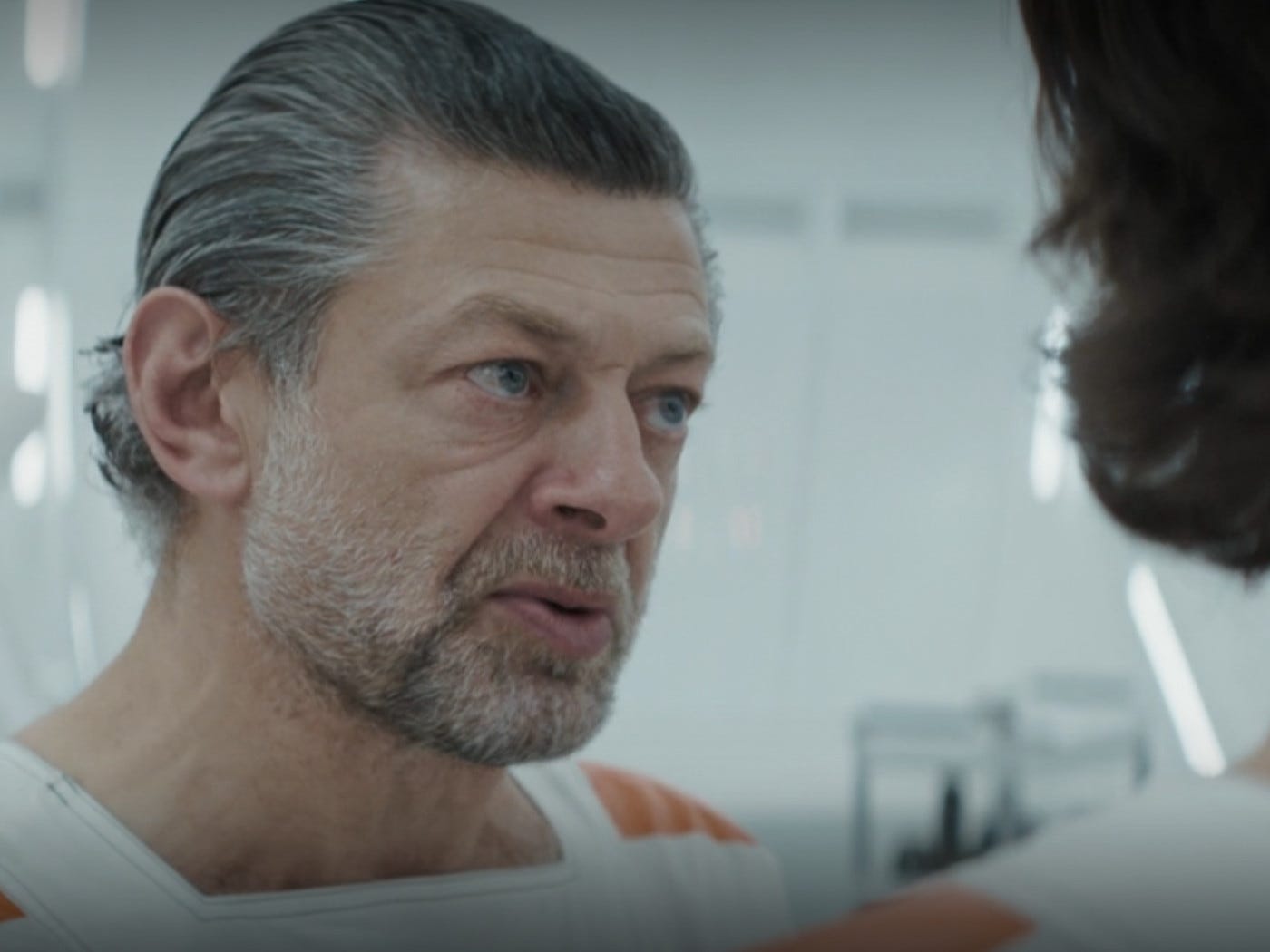

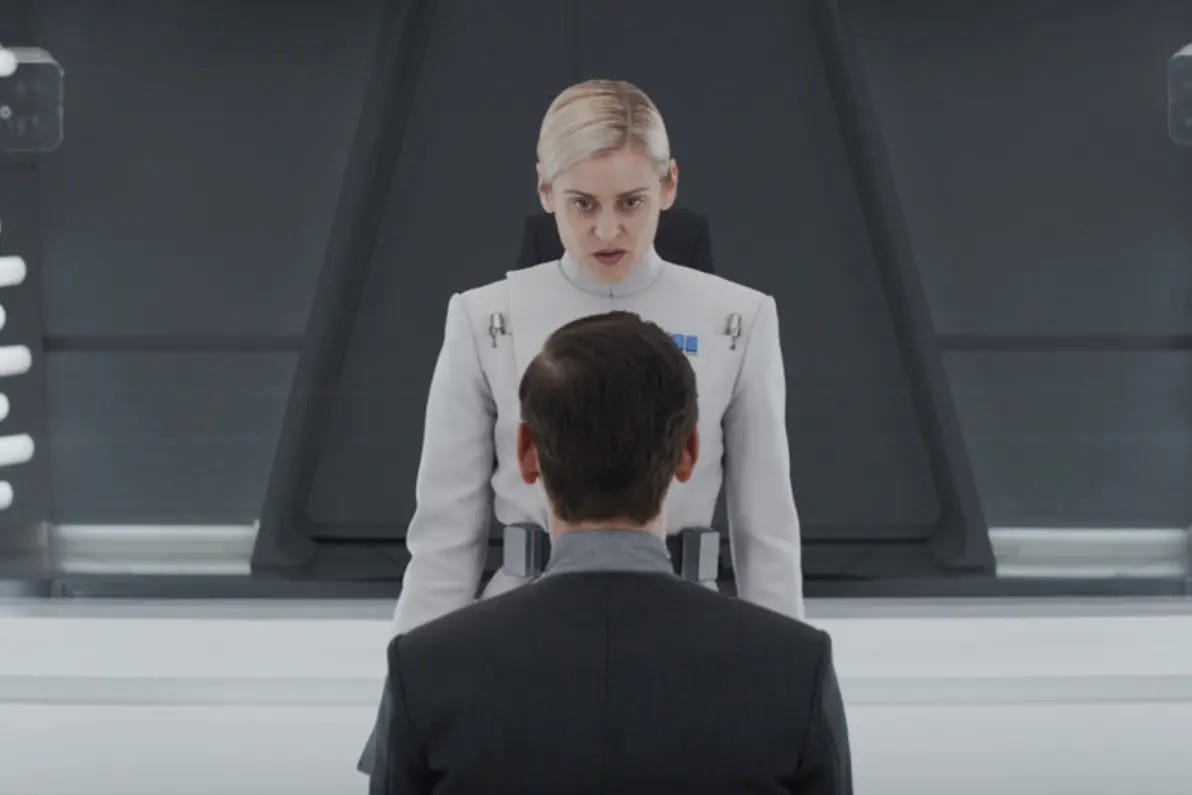
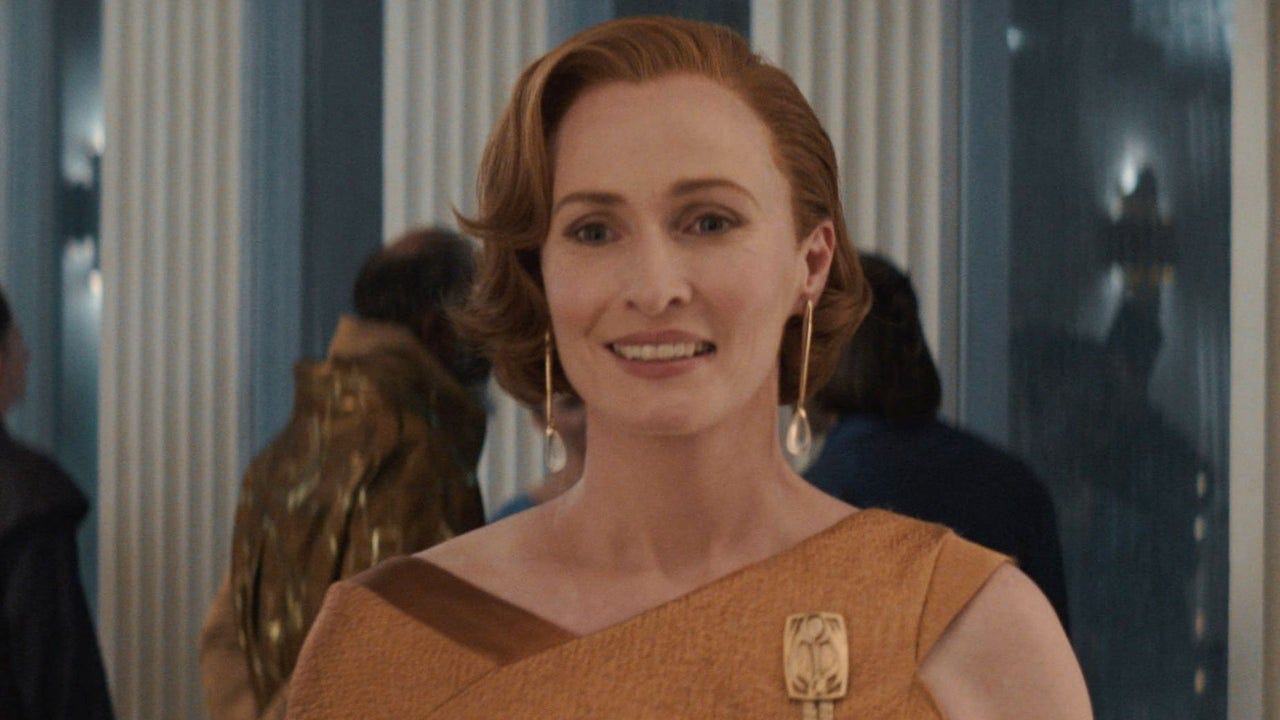

To add to the literary theme and Orwell - I saw hints of Homage to Catalonia in the last episode. In Homage to Catalonia there is a vivid description of Las Ramblas with Anarchists in one place shooting at Communists in another and Fascists in the mix too. The whole thing bonkers and all sides as bad as each other. It's more complex than that - but am referring to the funeral scene with the Empire after Cassion, Axel's girls looking for him and Axel himself - to kill Cassian. They are on opposite sides to the Empire but all trying to kill or capture the same person for their own ideological gains. Homage to Catalonia is my favourite Orwell book - and of course led to him writing Animal Farm. It's not quite the same as in Andor, the Republic are bad and the Rebels are good - but just as ruthless for their own ends. Cassian is like George Orwell - in the middle of all this. Watching through a peephole as all the sides gather in the main square.
As to why is no-one watching it? It's not advertised! I vaguely heard of it, as a Star Wars fan and happen to have the Disney channel and nothing good on TV. If it's only on the Disney Channel, it's not reaching people. It needs advertising and also to be on Netflix or Amazon Prime.
Love the breakdown of Foucault and his theories -- there are clear overlaps between his theories and the story here.
I know you didn't have space for it, but I think a telling moment from the Mothma scenes is when some of the other senators (or whatever dignitary position they may hold) at the party are saying that more laws are needed to maintain order, talking about how scary everything is now. That feels like another prominent way that The System perpetuates itself, keeping everyone afraid of each other instead of the mechanisms of society. Plus, of course, the people at the fancy Coruscant party are nowhere near as in danger as the people of Ferrix and the prisoners of Narkina 5.